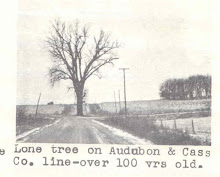It's the last day before winter break and the now traditional English department last-day-of-the-year egg casserole is baking. You know the one: eggs, bread, half-and-half, jalapenos, chorizo, cheese. Mine is never as good as my mother's was, nor is it as good as my sister's, and I do not care for it, but my co-workers insist it's divine. I have donned my semi-ironic sequined sweater and am braced for the sublime madness of finals and holiday sugar bombs showing up everywhere.
With a little time to kill, checked out my Twitter feed (yes I'm a Twit, aren't you?) and as usual, Charles Blow had an interesting link to wake my brain with.
A British education blog, School Gate, posts this: Should Spelling Be Inventive?
The first paragraph is a proud summary of all the British schools gearing up for a big spelling bee. "Some things in life are either right or wrong and spelling is one of those." I agree with that sentiment, and instantly think of color vs colour, then grey vs gray, and shake my head, try to focus. Where are we going?
The author of the article quotes a principal from a Georgia (USA) elementary school regarding spelling:
“However, for written expression activities students are allowed to use inventive spelling (spelling words by how they sound)," the principal writes, "to help get their thoughts on paper and avoid spending too much time on asking how to spell words.”
Oh dear. As all those Spelling Bee entrants know, you can't go through life spelling "inventively". I am not a fan of homework for primary school aged children, but I am fine with spelling tests because children simply need to learn the correct ways to write words.
And don't think that attitudes like this are limited to the States. The guidelines in this country are usually interpreted (at least in state schools) to suggest that teachers don't correct all the wrong spellings in a child's work, so as not to make them feel too downhearted. This of course means that many children don't realise that they have spelt a word incorrectly - and then don't learn how to spell it right in the future.
(My Yankee spellchecker tells me that she has misspelled "realize" and "spelled" up above but I'll defer for now.)
Let me just address what I believe the principal was getting at (or what I would have been getting at.) First, the use of the word "inventive" might have been an unfortunate choice. I think he was trying to say that for first drafts, the young writer's attention should be given to ideas, not technicalities.
I urge my students to set aside concerns about spelling, grammar, even logic, when taking a first stab at a topic. This is not because I'm afraid they'll become downhearted. It's because these important aspects of revision, introduced too early in the writing process, cause them to become fainthearted. The writing is flaccid and careful-- no going down blind alleys where wonder may lurk, no risky plunges into damp jungles of thought, no, they're too busy looking up believe.
Later they're expected to pull out the dictionary and take the red pen to their own work. Too often young writers toil under the misapprehension that if they are very careful on a first draft, it will be perfect and no more work will be required of them. They don't want to waste a jot of ink or effort, so they grip their little pens and clench their little brains and what comes out is stiff and possibly proper and usually dull. I want them to go wild.
Full disclosure: I am a terrible speller, and I admit this to my students. I tell them adults who claim to have all the answers, all the time, are liars or fools, and they'd better get used to looking up answers and checking with experts now or they'll grow up to be liars and fools themselves. Thank heavens we don't have closed-circuit cameras in the classroom (yet).
p.s. Despite the silly Christmas sweater picture in my previous post, my dogs are usually naked all the time.






1 comment:
Yay for naked dogs! What is it about Christmas? I've been posting pix of my dogs, too. Yours are cuter.
Post a Comment